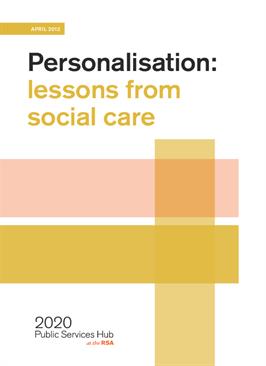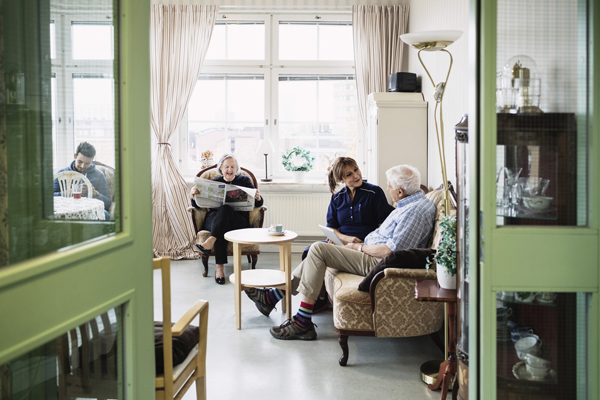There is consensus about the need for change in the way we fund, manage and deliver social care.
But we do not yet agree about what kind of change is needed, nor what should be the balance of responsibility between individuals, families, communities, providers and the state. The agenda is being led by events. Reform agendas in the NHS, local government and beyond are ensuring that the social care policy horizon keeps shifting. Health and social care reform is becoming re-politicised. And at a local level, many social care commissioners and providers are struggling to cope with the impact of austerity.
Meanwhile, there is a desire for approaches to creating disability and age inclusive communities to move far beyond the traditional confines of the social care and health sectors, into housing, employment, education and beyond. Amidst this shifting set of policies and realities, there has been remarkable consistency around the need for greater personalisation of public services and a bottom up, integrated approach. Today’s focus on direct payments and personal budgets is part of a long-term transition from institutional to community based care, and towards the coproduction of services. Now is the right time to ask where this transition takes us next and whether it stops with social care and health.
As Alex Fox shows in this thoughtful paper, the personalisation agenda encourages innovation, offering the potential to create new markets around localised and individual needs, to focus fiscal resources directly and discretely, and to enable small groups of individuals to ‘positively disrupt’ a complex and opaque system. These are all developments to be welcomed. Yet the success of the personalisation agenda in future will depend upon answering some even more fundamental questions about the nature of future supply and demand for public services. Most crucially, these questions go beyond the capabilities of the individual, and beyond the mechanics of how health and care services are funded. This means exploring what the role of families, communities and collaborative groups could be in designing and providing support and creating inclusive communities. It means defining what is needed to catalyse and sustain a much broader market of services that would take personalisation to the next level. It means asking what government, citizens and the market can do to scale pilots and piecemeal change into long term transformational change for the sector.
We believe that the RSA’s social productivity approach – which focuses on the strength and quality of relationships between citizens and public services – can help policymakers and practitioners address these issues. We are delighted to be working with Shared Lives Plus and others within the sector to take this agenda forward.
pdf 1.3 MB
Contributors

Related reports
-
Move fast and fix things: How to be a public entrepreneur
This report describes the findings from a six-month inquiry where we applied the RSA’s model of change “think like a system, act like an entrepreneur” to the challenges of procuring and scaling innovation through government.
-
Health as a social movement: theory into practice
The RSA and NEF in partnership with NHS England publish a report to develop a community-led health system.
-
Releasing energy for change in our communities: social movements in health
How can we liberate and harness energy for change in our communities? Reflections from the Health as Social Movement project.



